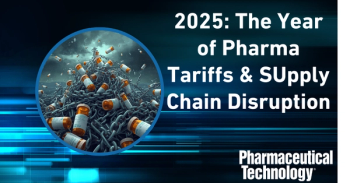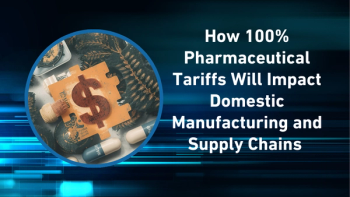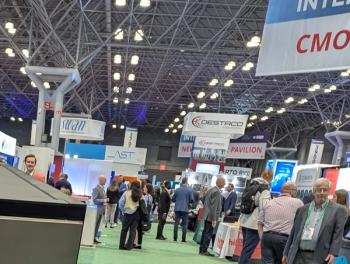
- Pharmaceutical Technology-02-02-2019
- Volume 43
- Issue 2
Innovations Maintain the Cold Chain
Recent advancements in cold-chain technology offer improved transporting and storing of temperature-sensitive pharmaceutical products.
As focus on the development and manufacture of biologics increases, so does the necessity for competent cold-chain technologies. Over the past several months, manufacturers have released an assortment of products and efforts to preserve the physical integrity of temperature-sensitive pharmaceutical products.
Pallet and parcel shipping systems
Softbox, a provider of temperature-control packaging solutions, released new pallet and parcel shipping systems that include the Tempcell ECO, Tempcell MAX, and Silverpod MAX (1).
The Tempcell ECO is a recyclable parcel shipper made from recycled corrugated paper materials. The ECO uses the company’s Thermaflute patent-pending design and is qualified against International Safe Transport Association (ISTA) 7D summer and winter profiles and is able to control different temperature ranges, including 0 °C to 30 °C products.
The Tempcell MAX is a single-use, high-performance phase change materials (PCM) parcel shipper that is qualified to ISTA 7D test profiles and maintains up to 96 hours of thermal protection. The MAX integrates the company’s SilverSkin radiant barrier to enhance thermal performance and uses next-generation recyclable Pharmacool MAX PCM coolants.
New to the company’s Silverpod pallet shipper range is the Silverpod MAX, a high-performance PCM pallet shipper that incorporates PCM coolants that enable safe storage before and during shipping. The Silverpad MAX also has a SilverSkin reflective radiant barrier for enhanced thermal performance and, like the Tempcell MAX, uses next-generation recyclable Pharmacool MAX PCM coolants.
The previously mentioned shipping solutions were showcased at the IQPC Temperature Controlled Logistics (TCL) conference in London on Jan. 28–31, 2019.
Additionally, the company also pre-launched two temperature control packaging systems at TCL-the AEON Metro and Clinipod-for the delivery of pharmaceutical clinical trials.
AEON Metro is a reusable multi-drop delivery parcel shipper that enables cold-chain delivery without the need for temperature-controlled vehicles. The Metro has reusable PCM coolants that support up to 48 hours of multi-opening thermal protection. The Clinipod is a lightweight carry-home shipper built to facilitate the last-mile delivery of clinical trials to the end patient. Using the company’s reusable PCM coolants, it provides up to six hours of thermal protection in extreme temperature conditions.
Poseidon unleashes ‘Plug & Play’
Also presented at the 2019 installment of the TCL conference was progress on pharmaceutical ocean-freight network Poseidon’s ‘Plug & Play’ model (2). Poseidon is an industry reform initiative created to improve the conveyance of pharmaceutical products by ocean transport. The initiative includes an independent network of pharmaceutical manufacturers, specialist freight companies, and pharma logistics suppliers joining forces to improve cost, safety, and sustainability of the cold-chain process.
“Poseidon takes the form of a strategic supply network comprising a group of independent pharmaceutical manufacturers in conjunction with all the principal actors involved in transporting a pharma product by sea,” said Alan Kennedy, executive director at Poseidon, in a press statement. “Designed from the ground-up, it involves shippers, logistics companies, marine insurers, and product suppliers all being seated around the same table as equal partners.”
According to the Poseidon team, state-of-the-art thermal management and real-time shipment visibility are central elements in the Poseidon model, but what sets this initiative apart is its integrated approach, which brings together all cold-chain parties to collaboratively address fundamental problems in pharma logistics. The team also states that in addition to a standard full-container-load operation, Poseidon will be testing a flexible shared-container service in 2019 to cater for smaller consignments and provide maximum flexibility.
Poseidon completed Phase I of a large-scale proof-of-concept pilot project in 2018 and is currently in Phase II. According to the Poseidon team, this field validation project aims to examine cold-chain processes, test-out protective packaging, and verify consignment visibility and data capture and is the largest pharma ocean freight project of its type ever conducted. The project involves the monitoring of several refrigerated container-loads of high-value pharmaceutical products during both summer and winter intercontinental logistics operations, including multiple ocean and overland stages.
Electronic data logger
The LOG-IC 360 Bluetooth Data Logger by American Thermal Instruments (ATI) provides accurate temperature and humidity readings along with safe, secure data retrieval and storage (3).
The data logger allows for remote temperature excursion (thermal alarm) monitoring during product transport. Less than two inches by three inches wide, the device can read individual temperatures up to 300 feet from the unopened product. The lithium coin cell battery has a minimum one-year capacity, a temperature range of -20 °C to 70 °C, and relays data to Android, iOS, or any other Bluetooth-enabled device.
High-precision temperature accuracy is ± 0.25 °C, compared to other industry suppliers at ± 0.50 °C, the company reports. The logger tracks a humidity range of 0–80% relative humidity with communication certifications, which include Federal Communications Commission, Conformité Européenne (CE), and National Institute of Standards and Technology platforms.
Flexible freeze containers
Global materials science company W. L. Gore & Associates has developed GORE STA-PURE Flexible Freeze Containers to protect high-value bulk drug substances from container breakage or leakage during frozen handling, which is typically a vulnerable stage in the product’s transport (4).
The containers are constructed of a proprietary high-strength fluoropolymer material that is durable after freezing at -86 °C (-123 °F). In addition to durability, the container’s chemically inert, biocompatible, high-purity fluoropolymer composite film has a low extractables profile and offers users the convenience and scalability of a single-use system that efficiently uses freezer space, according to the company.
References
1. Softbox, “Softbox Announces the Launch of New Innovative Temperature Control Packaging Systems,” Press Release, Jan. 24, 2019.
2. Poseidon, “Poseidon Exposing its Unique Plug & Play Pharma Ocean-Freight Model in London,” Press Release, Jan. 14, 2019.
3. American Thermal Instruments, “ATI Launches Innovative Electronic Data Logger for Cold Chain System,” Press Release, Sept. 18, 2018.
4. W. L. Gore & Associates, “Gore to Launch GORE STA-PURE Flexible Freeze Containers at BioProcess International,” Press Release, Aug. 21, 2018.
Article Details
Pharmaceutical Technology
Vol. 43, No. 2
February 2019
Pages: 46–47
Citation
When referring to this article, please cite it as A. Lowry, “Innovations Maintain the Cold Chain," Pharmaceutical Technology 43 (2) 2019.
Articles in this issue
about 7 years ago
Spectroscopy Facilitates Lean Analysisabout 7 years ago
Fundamentals of GMP Warehouse Designabout 7 years ago
Effective Root Cause Determinationabout 7 years ago
Process Development Best Practices for Topical Drug Productsabout 7 years ago
FDA Promotes Quality Standards to Reduce Shortagesabout 7 years ago
Small-Batch Aseptic Fill/Finish Systemabout 7 years ago
Automatic Desiccant Inserterabout 7 years ago
Multi-Shaft Mixer and Disperserabout 7 years ago
Sterile Boot Coversabout 7 years ago
Advances in Engineering of Protein-Based APIsNewsletter
Get the essential updates shaping the future of pharma manufacturing and compliance—subscribe today to Pharmaceutical Technology and never miss a breakthrough.




